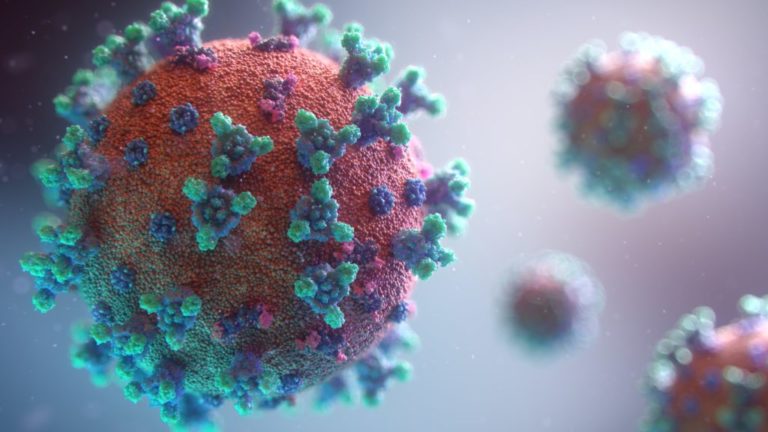This article will cover: What is Covid-19? How does Covid-19 affect those who dive? Can those with a covid-19 infection still dive? When should someone avoid diving after becoming infected? If I’m infected, do I have to stop all physical activity forever? What other precautions
The recommendations were incorporated into the Health Declaration Form for Covid-19, which was developed by DAN Europe in collaboration with the Undersea and Hyperbaric Medical Society (UHMS) of the United States, the Belgian Society for Diving and Hyperbaric Medicine (SBMHS-BVOOG), and the European Committee for Hyperbaric Medicine (ECHM). The form was approved by ECHM, SBMHS-BVOOG, and UHMS in early 2019.
The University of California, San Diego (UCSD) has also established medical standards for recreational, scientific, and commercial divers.
After the ban was lifted, we have received inquiries from divers who have contracted Covid-19 about when they may safely resume diving and what if any precautions they should take.
As a result, we felt it was vital to re-publish the following medical advice as shown below. In addition, we’ve gathered the recent field experience of some DAN Europe doctors who have treated and/or advised divers who had Iodine Neuropathy.
Table of Contents
Returning to Diving after a Covid19 Infections: What Doctor’s Suggest
Medical warnings refer to the virus’ various symptoms and risk of transmission, as well as some known risk factors that seem to influence severity. The authors were careful to emphasize that while advice was being developed, there was a lack of scientific evidence, but clinical papers have documented severe lung, heart, central nervous system, and renal damage in persons infected with Covid
Divers have been advised to avoid diving while infected with Covid-19 due to potential damage caused by the virus. Persistent lung or cardiac involvement has been observed in divers who became sick after being exposed to Covid-19. Divers who have been infected with Covid-19, like other severe viral pneumonia, must undergo a complete recovery before returning to diving.
COVID-19 has been detected in the air, on surfaces, and in indoor spaces where people live. As a result of this epidemic, there is considerable public interest in maintaining optimum air quality while avoiding unnecessary exposure to respiratory irritants that might aggravate symptoms. We have also received several inquiries about when individuals can expect their next viral load
Always remember that standards and recommendations will vary somewhat across European nations. National recommendations were made to address a previously little-known kind of heart and lung illness, and they can’t be expected to be completely uniform across countries and cultures. All advise individuals to take care when exercising outdoors.
Recommendations:
- Divers who have been cleared to dive should wait at least 30 days from the first negative test before applying for fit-to-dive clearance and then returning to diving.
- Divers who have experienced COVID-19 symptoms should wait at least 30 days after their first negative test and another 30 days after no further signs before applying for a fit-to-dive clearance from a diving medicine specialist.
- Divers who have been hospitalized with, or as a result of COVID-19-related respiratory problems should wait at least three months before attempting fit-to-dive clearance conducted or coordinated by a diving medicine specialist. The evaluation should also include an exercise test with peripheral oxygen monitoring and a high-resolution CT scan of the lungs to confirm that the diver is recovering properly.
- Divers who have been hospitalised because of COVID-19 cardiac issues should wait AT LEAST three months before applying for fit-to-dive clearance conducted or coor. dinated by a diving medicine specialist. The clearance should include a cardiac examination, including echocardiography and an exercise test.
It’s critical for these pulmonary and cardiac tests to be interpreted and validated by a qualified medical professional with diving medicine expertise. DAN Europe members are entitled to receive a remote medical consultation from the world’s largest network of scuba diving support services provided by DAN Europe.
We are providing a simple to comprehend, downloadable flow chart of these SUHMS guidelines, which was last revised on January 29, 2021. Please keep in mind that the SUHMS recommendations are somewhat more stringent.
Other Risks to Consider
Divers who have had the Covid-19 infection might be at risk for additional problems. The best method to find out if you’re prone to pulmobarotrauma, lung bubble shunting, cardiac or other ailments is to get a recommended diving medical screening. Divers who are at higher risk should consider the following in consultation with their diving doctor before returning to diving.
Lung barotrauma: Divers who have had significant respiratory problems may have suffered from long-lasting or even irreversible lung damage, even if their lung function has improved. This damage can create a higher risk of lung barotrauma after dives without a fast or uncontrolled ascent. (Belgian Society for Diving and Hyperbaric Medicine)
Pulmonary oxygen toxicity: There is presently little known about how oxygen sensitivity in the respiratory tissue may be increased; therefore, it would be prudent to assume that technical diving with long periods of hyperoxic gas inhalation, such as rebreather diving, should be avoided. It’s a no-brainer that a person who can’t breathe pure oxygen should not be asked to go deeper than 40 meters. The depth at which this situation is encountered varies widely based on the amount of time spent underwater, the ambient water temperature, and other factors. Between 20 and 30 meters.
Decompression illness: The impact of COVID-19 on the “bubble filter” function of the lungs has received even less study.This might indicate that the risk of decompression sickness will be significantly higher. As a result, divers with COVID-19 pulmonary symptoms should restrict their dives to well within the computer’s no-decompression limits (NDL) (so that at no moment during the dive, the computer suggests necessary decompression stops).
Prevent The Spread: Covid-19 And Diving Operations
The Covid-19 is anticipated to remain in the community and pose a continued risk of transmission between people if they remain in close proximity or use common personal equipment. Every dive center or diving team should do an assessment of risk prevention and mitigation utilizing established recommendations. Divers and dive businesses should follow the regulations for disinfecting diving equipment established by the diving federations and DAN Europe, as well as those set forth by Divers Alert Network.
Generally, it is recommended:
- Maintain social distance measures as directed by the local authorities, especially during diving operations’ surface phase (particularly during diving operations’ surface phase), including wearing masks and maintaining a safe social distance.
- With the right disinfectants, such as chlorine, used to cleanse private and rental equipment, including emergency oxygen units, which may contain a variety of germs such as fungi, bacteria, spores and viruses
- Avoid exchanging one’s own breathing apparatus except in genuine emergency situations.
- To ensure that personal safety is maintained while performing any “breathing systems sharing” activities.
Conclusion
I hope this article has been helpful in understanding how the health organization has worked together to create a Health Declaration Form that will be used by Covid-19 patients.
More importantly, divers who follow the instructions above can reduce the dangers of spreading infection by avoiding contact with infected fish and ensuring that Covid-19 divers resume their activities in a safe manner.

